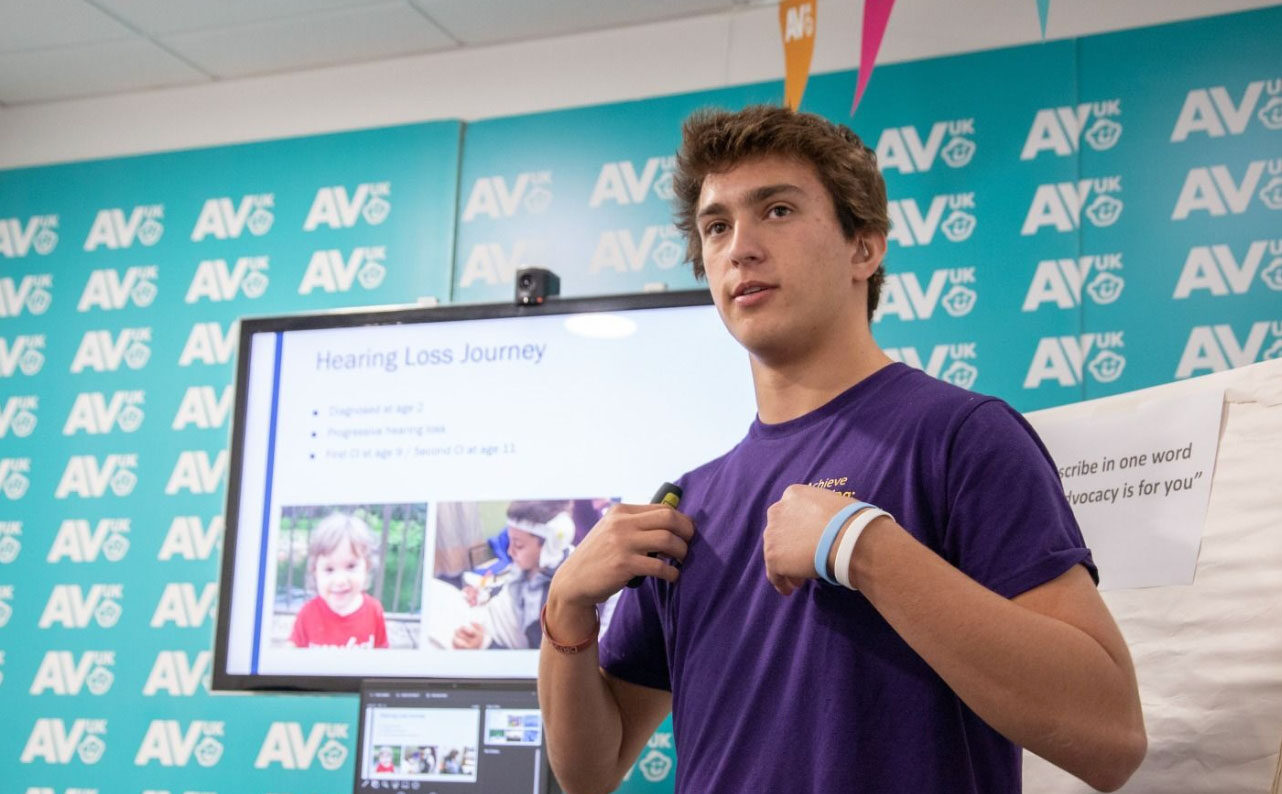Cochlear Implants Offer Teen Life-Changing Journey

Theo Valles was diagnosed with hearing loss at the tender age of two.
“I wore hearing aids up until I was nine, and I became profoundly deaf at around eight or nine. I felt a little different at times. Sometimes kids would say something about it,” says Theo.
Theo and his family went to see Ivette Cejas, Ph.D., Director of Family Support Services as part of the Children’s Hearing Program at UHealth, who says early intervention is key.
“If hearing loss is untreated, it doesn’t just affect communication. It can also have really big major impacts on learning, on education, on social skills, on cognitive development, and even in emotional functioning,” Dr. Cejas says.
Theo received his first cochlear implant at age nine.
A cochlear implant is made up of two pieces. One part is implanted underneath the skin, and a separate part sits over the ear and attaches with a magnet. A microphone picks up sound, vibrating the cochlea, stimulating the auditory nerve, allowing you to hear.
“I could tell the difference immediately once I got used to them, how much clearer the sound was than when I had a hearing aid,” Theo says.
UHealth offers a comprehensive Children’s Hearing Program.
“That includes one of a kind interdisciplinary team of audiologists, speech and language pathologists, otologists, psychologists, educators, and social workers, to make sure that we’re not just treating the child’s hearing or their ears, but we’re also providing the emotional support, the social support,” says Dr. Cejas.
Dr. Cejas is the lead author of a recently published study in the Journal of the American Medical Association.
“What we found was that those children who received cochlear implants had better academic achievement in reading, writing, and they also had improved quality of life,” Dr. Cejas explains. “Very importantly, we saw that the biggest benefits were for those who were implanted early, so prior to 18 months of age.”
Theo is doing so well he’s now a cochlear implant ambassador and advocated for access to hearing healthcare in London alongside Nobel Prize laureate Malala Yousafzai.
“I learned that while we’re from all different cultures, all different parts of the world, a lot of the problems and issues that we face with hearing loss are the same,” says Theo.
He is so thankful to Dr. Cejas and the UHealth team.
“You guys have changed not only my life, but also my family’s life,” Theo says.
Ivette Cejas, Ph.D., is a psychologist and Director of Family Support Services as part of the Children’s Hearing Program at UHealth, the University of Miami Health System. For information on hearing loss treatments and services, click here.
Video transcript compiled by Janna Ross for ‘Focusing on You: Innovations in Modern Medicine,’ a series of health care-related stories airing regularly on WPLG Local 10. For more stories like this one, visit UHealth’s YouTube channel.
Tags: Children's Hearing Program, cochlear implant, deaf, Dr. Ivette Cejas, focusing on you, hearing loss, otolaryngology
